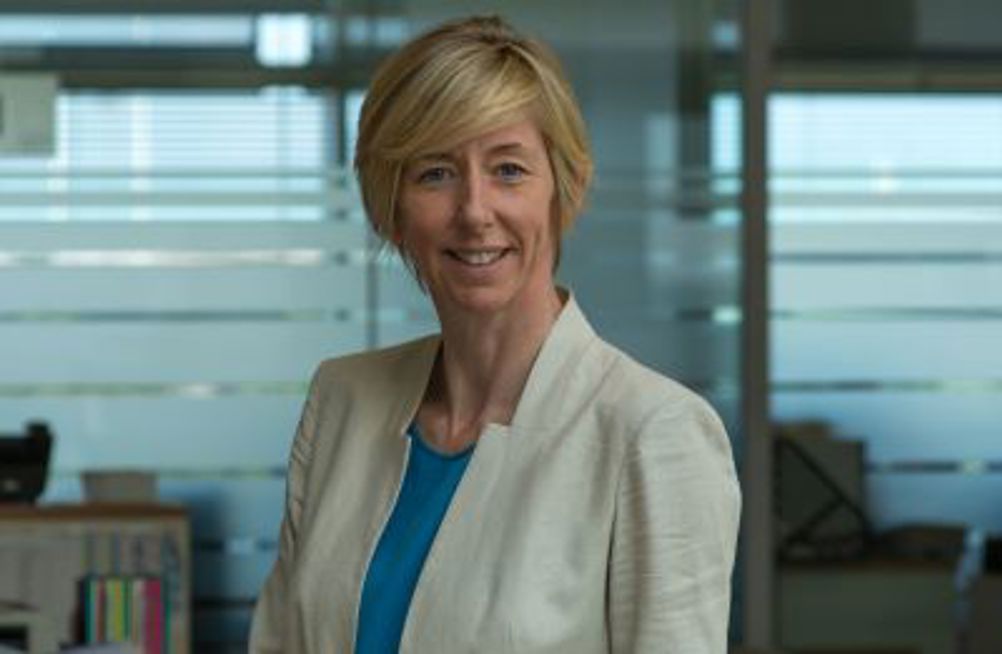To reach the government's 2050 net zero target on time, the UK's energy sector will need to recruit 400,000 workers[i]. Given the nation faces a skills shortage, this is no easy task. However, there is a vastly underutilised talent pool: women. Women are systematically underrepresented in critical green sectors, including engineering. To reach a just and timely transition, we must ensure our workplaces appeal to, accommodate, and empower women.
The potential is there. Since I began my engineering studies in the early nineties, I have seen a remarkable increase in understanding of the need for female representation. Today, on site at Hinkley Point C, I work with brilliant women who are driving forward the UK's clean energy future.
Despite this shift, women only make up 16.5 per cent of engineers in the UK[ii]. This is only a small increase from 10 per cent, when I started my career. Alarmingly, delays on attracting women to green jobs, including in engineering, could also push gender equality back by 15 to 20 years[iii]. At Sizewell C, we're working to fix this.
Our female leaders are driven to use Sizewell C as a catalyst to grow women's participation in engineering. This is reflected in the government's Nuclear Sector Deal, which means that 40 per cent of our workforce will be female by 2030.
We also know how important attracting new talent is. 50 per cent of our apprenticeships go to women. As part of our collaboration with educational institutions in Suffolk and Norfolk, we have organised tours of Sizewell B nuclear power station for local female students. These tours have given students the opportunity to see first hand how women are powering the UK's green economy.
With the net zero economy set to add £70bn annually to the UK economy, we cannot afford to let gender inequality hold us back
However, we know that opportunity alone is not enough to draw women into engineering. More than ever, young people are considering the work environment when making job choices. This means creating workplaces that are attractive to and supportive for women.
At a basic level, this means removing all obstacles to women's safety. From unfit PPE to male-only on-site toilets, I know too well how gendered assumptions can leave women unsafe and uncomfortable at work. We are committed to actively challenging male-dominated norms and offering a supportive and safe workplace for women across the entire project. As part of this, we have joined Women into Construction, a not-for-profit supporting women and businesses to drive up female participation in construction. We have also established a Gender Balance Network, which meets regularly to report on how we can make sure women are supported and retained in our workplace.
I know from personal experience that engineering is a rewarding career path. Sizewell C will create thousands of jobs on site, and support 70,000 jobs across the supply chain, providing a once-in-a-generation opportunity for women to launch careers in critical sector for net zero. The project will save nine million tonnes of carbon emissions annually, and produce baseload power, which will support growth in renewables.
With the net zero economy set to add £70bn annually to the UK economy[iv], we cannot afford to let gender inequality hold us back. By demonstrating best practice, Sizewell C can be a model to the entire sector of how to inspire women into engineering careers. This is a critical opportunity for women in engineering, unlocking a vital pool of talent and driving forward the UK's green economy for generations to come.

Sarah Williamson, Construction Performance Director at Sizewell C
[i] https://www.nationalgrid.com/stories/journey-to-net-zero/net-zero-energy-workforce
[ii] https://www.engc.org.uk/news/news/new-analysis-shows-increase-of-women-working-in-engineering/#:~:text=New per cent20research per cent20from per cent20EngineeringUK per cent20has,10.5 per cent25 per cent20as per cent20reported per cent20in per cent202010.
[iii] https://www.bcg.com/publications/2021/climate-action-impact-on-gender-equality
[iv] https://www.cbi.org.uk/articles/insight-for-business-on-the-uk-s-net-zero-transition/#:~:text=We per cent20evidenced per cent20some per cent2020 per cent2C000 per cent20businesses,the per cent20UK per cent20Economy per cent20per per cent20year.











National Gas receives funding to develop Gravitricity underground hydrogen storage system
There can't possibly ever be a '<i>business</i>' case for the <i><b>bulk</b></i> storage of hydrogen, since Green hydrogen electrolysis...